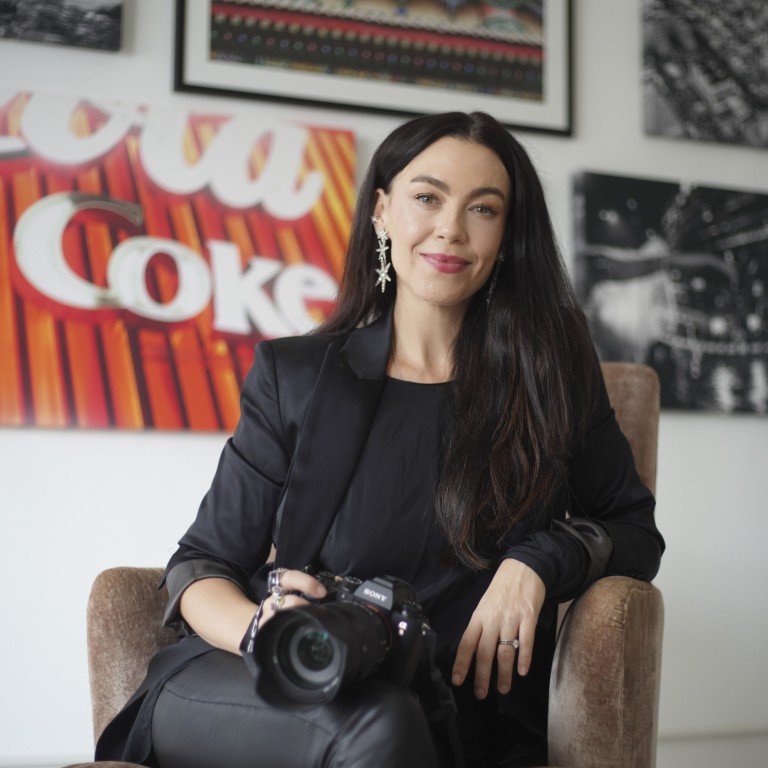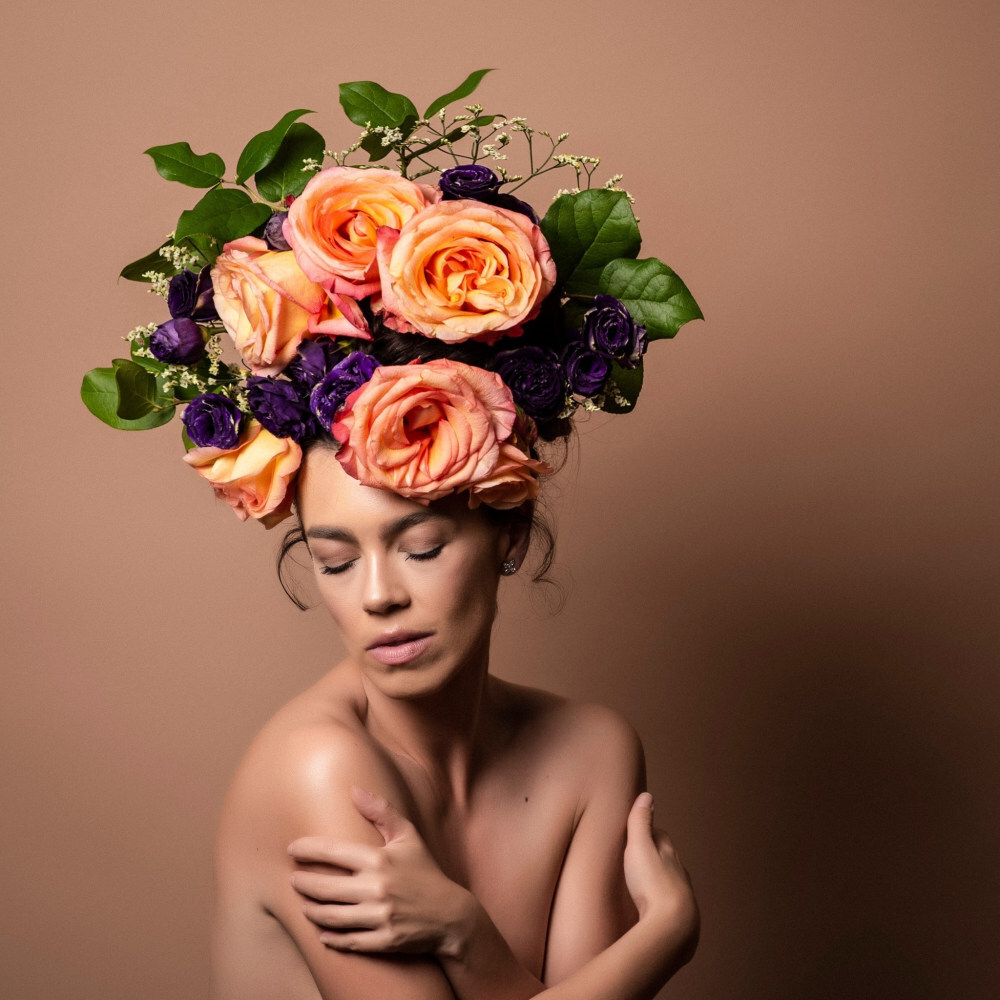
Stage 3 cervical cancer treatment brings new perspective on life for photographer – she’s taken up meditation, stopped working overtime and adopted a largely plant-based diet
- Julia Broad panicked at first, but meditation and breathwork helped her through cancer treatment. The disease has made her rethink her priorities
- The Hong Kong-based Australian no longer pushes herself as hard, has largely given up eating meat, and spends more time with her husband, daughter and friends
When she first heard the diagnosis, Julia Broad’s first thought was, ‘I am going to die’.
The 37-year-old Australian photographer, who has been living in Hong Kong for five years, was admitted to hospital with a pelvic infection in late 2020. After a round of tests, in early 2021 she was told she had stage 3 cervical cancer. She was terrified.
“The doctors had initially recommended a hysterectomy, but changed their minds as the tumour was larger than anticipated, and the cancer had spread to the lymph nodes. Surgery would not be of any help, I was told,” she says.

Breaking the news to her nine-year-old daughter was heartbreaking. “I sat down with her and explained that our bodies have healthy and unhealthy cells, and that mummy was going to get her unhealthy cells removed,” shares Broad. “Her first question was ‘Mummy, are you going to lose your hair?’”
Once the news sunk in, Broad oscillated between optimism and despair. “My thoughts jumped from visualising my tumour shrinking and fading away to wanting to run away to my childhood home in Australia. I cried, hugged and worried harder than I ever thought possible,” she says. She missed her parents, who live in Australia and could not travel.
Nature therapy explained: how it eases stressed minds, bodies
As the time to start her treatment neared, Broad felt nervous and anxious. “I thought I would be calm and stoic, I was anything but that. I was afraid. I distracted myself by spending time with my daughter, immersing myself in my photography assignments and going for walks,” she says. Broad calls herself “a woman photographer for women”, and specialises in capturing the beauty of women.
Over the next seven weeks, Broad underwent five chemotherapy cycles, 27 radiation and three brachytherapy sessions (in which capsules containing a radiation source are placed in the body, in or near the tumour).
A self-portrait with a magnificent floral arrangement on her head captures much of the angst coursing through her then.

“I would wake up with what felt like a combination of white wine hangover and shellfish poisoning,” she adds.
“When I went for my first chemotherapy session, I panicked seeing the cannula [the tube inserted into a vein to deliver the drugs]. Having my hand immobilised made me feel claustrophobic,” she says.

“Hard as they were on me physically and emotionally, I adapted to the treatments. After a while they did not seem insurmountable,” she says, and credits her husband and girlfriends for being her pillars of strength.
“My girlfriends made a roster and every single day, one of them was with me at the hospital. My husband took on my role and became both a mother and father to our daughter. My helper Karen ensured that our family kept running as normally as possible.”
Broad underwent treatment at Queen Mary Hospital and credits the public health system in Hong Kong for being extremely efficient. On day 22 of her treatment, she commended the staff in a Facebook post.
How Hong Kong men can help wives overcome breast cancer fears
“The courage, selflessness and hard work of the doctors and nurses that I witnessed is superhuman. The focus on cleanliness was incredible. I was treated with kindness, respect and empathy,” she says.
In June, Broad had a week off from her treatment. “I wanted to forget that I had cancer,” she says and cheered herself up by going shopping with her daughter and working on a photo shoot.
To help her over the financial hurdle of not being able to work for several weeks, her parents set up a GoFundMe page from Australia with a goal of raising A$5,000 (US$3,600). It raised more than A$7,500.
My friend reminded me that I didn’t need to be as strong as steel, I needed to be strong as bamboo, bendable but not breakable
She found joy in her daily life. “I looked forward to our weekly Friday night ritual … when we make pizzas together as a family, and binge watch Netflix.”
In a session with a hospital psychologist, Broad cried. “I could speak without the fear of being judged. I told her of my inability to envision my life after cancer, of my bleeding cysts and pelvic infections, of pain and the fear of death,” she says.

There is a stigma associated with cervical cancer and an unspoken assumption of promiscuity, since one of the causes of the disease is a virus that can be transferred during sexual intercourse. “Writing gave me an opportunity to address that stigma and share my journey,” says Broad.
When Broad’s daughter felt anxious, she practised a visualisation exercise with her. “I asked her to imagine that she is walking in a forest, surrounded by trees, feeling the ground beneath our feet and hearing the sound of birds chirping. It comforted her.”
Keep calm and breathe on: yoga tips to beat coronavirus fears
“Earlier I was consumed by work, answering work emails till 11pm. Now, as a rule, I stop working at 6pm and spend my evenings with my friends and family.”
Before cancer, her workouts focused on cardio and resistance training. “I’ve learned to listen to my body and be less regimented,” she says. She now enjoys walks from her home in Happy Valley to Admiralty every day. “My goal is to complete 12,000 steps daily.”
Change up your workouts for a mental health and well-being boost
The homepage of her photography website, julesbaby.com, now declares: “Jules, Baby! Is Back!” And below it thanks all Broad’s supporters and adds: “Proud to say she is back and cancer-free.”
Cancer forced her to re-evaluate who she was, she says, and who she wanted to be.
“Cancer made me want to become kinder, less judgmental, more patient, and a better listener. It taught me to tell people I loved what they meant to me. I have learned that though getting cancer was not my choice, the way I choose to deal with it and live my life certainly is.”

